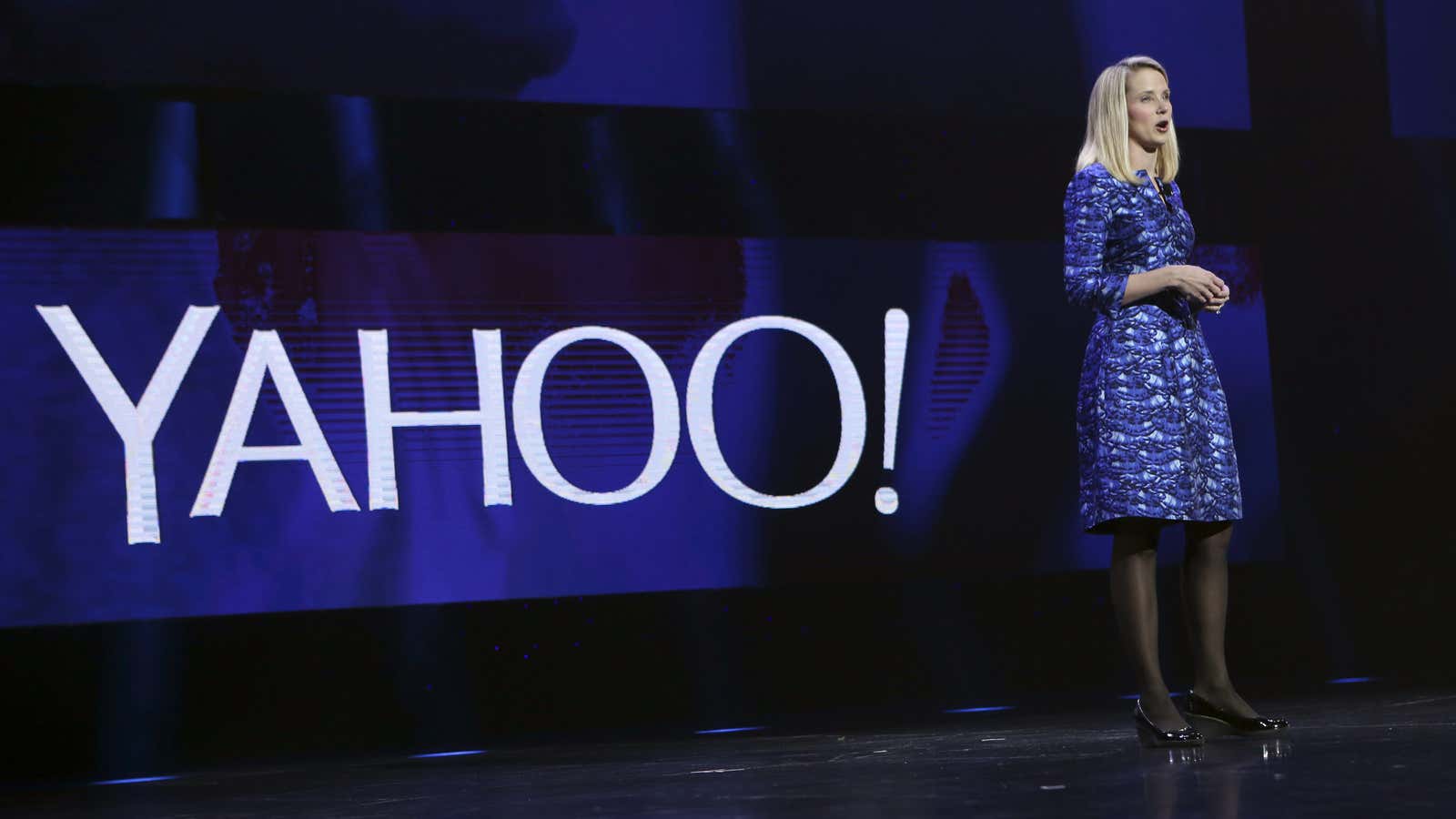Five years presiding over the decline of one of the internet’s first iconic corporations would damage anyone’s reputation, but it was particularly bruising for Yahoo CEO Marissa Mayer, who leaves her job today extremely wealthy but roundly disdained.
In 2009, Mayer was a rising star at Google, and was named one of Glamour magazine’s Women of the Year. Last month, as she wound down her tumultuous tenure running Yahoo, she was named the least likable CEO in tech in a survey by Owler, a business insights website.
As Mayer looked for a strategy to turn around the company’s sinking fortunes, she flailed. She presided over dozens of acquisitions—including $1.1 billion for Tumblr—but with little to show for it. A complicated plan to spin off its one truly valuable asset—a stake in the Chinese e-commerce giant Alibaba once worth $40 billion—was proposed, then abandoned. She laid off thousands of workers and earned the ire of thousands more by ending Yahoo’s remote-work policy. She spent lavishly, micro-managed excessively, and seemed to alienate all her potential allies.
In truth, Yahoo was a losing proposition the day Mayer took the job. The company had lost its edge in search a decade earlier, and the business model of an internet portal was becoming obsolete. The board—led by CEO and co-founder Jerry Yang—had rather arrogantly turned down a $45 billion takeover bid from Microsoft in 2008, seeking more. Mayer, with her youth, drive, and Google magic, was supposed to be the savior to return Yahoo to its past glory. Instead, the company was broken up, and Verizon bought its core assets for $4.5 billion. Its remnants will be joined with other odds-and-ends of the internet to form Oath.
Mayer’s precarious position at Yahoo has often been called a classic example of the “glass cliff” phenomenon, where women are asked to turn around companies in trouble, either because boards think stereotypically female skills are needed, or because women can’t afford to be picky about their leadership opportunities. It’s a trap that has also snared Ursula Burns of Xerox, Mary Barra of GM, and Carol Bartz, one of Mayer’s predecessor at Yahoo. (All but Barra are no longer CEOs.)
Mayer is likely done as a CEO, and with a reported $186 million payout, she’ll never need to work again. After the last five years, she’ll probably never want to.
